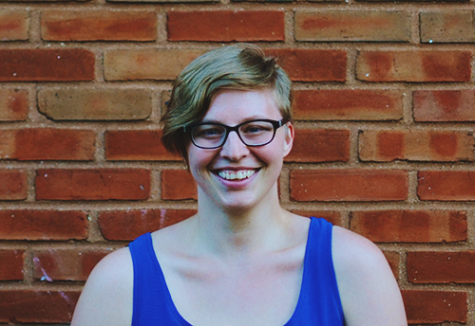From one court to the other
Men’s Tennis teammates volunteer at Inner City Tennis Clinic
April 3, 2014
Student-athletes here at Case Western Reserve University are experts at time-management. On top of practice and long road weekends, athletes still find time to keep up with rigorous academic schedules and involvement with other campus organizations. Surprisingly, many of these students have also found time to get involved with their community.
Several members of the varsity tennis team dedicate themselves to a community service organization and put in their time with the Inner City Tennis Clinic in downtown Cleveland.
ICTC is a non-profit organization with a mission to provide urban youth in Cleveland with after-school programming and instruction in tennis. The organization, founded in 2010, continually receives support from Case students, with university tennis coach Todd Wojtkowski serving as a member of the board. He challenges students to get involved with the community and help contribute to the sport that has given many a sense of accomplishment. He attributes that obligation to be the main reason students volunteer to help. “I think it’s just giving back. Tennis provides so many opportunities, I think they’re just looking to pass that on,” said Wojtkowski.
Adam Collins, an electrical engineering student, recognizes ICTC as a chance to learn more about the city outside of the quad and residence halls. “I think it’s important to give back, but more important, I think, for kids to get outside of Case Western….just to see another side of Cleveland, it’s a city that has a lot to offer,” said Collins. Wojtkowski also recognizes the value of community involvement in the lives of Case students. “They see how hard the ICTC kids have to work to even get into college, it definitely gives perspective for coming back to campus.”
Collins tries to get to the clinic a couple of times per week and enjoys spending time teaching tennis to the group of regular students. An especially satisfying feeling for Collins is the experience of watching the children improve. “I personally enjoy working with people. It’s really satisfying when you see improvement and knowing that you helped somebody get better.”
Collins is part of the team of volunteers who is dedicated to tennis instruction. However, tennis is only a small part of the clinic’s mission. The clinic began as a summer program which offered free breakfast and lunch to their participants along with activities based on five key components of literacy, fitness, poetry slam, wellness and tennis. The tennis serves largely as an incentive for the children and their families, providing the chance to learn the sport and be active during the summer. Brian Smallwood, the executive director of the clinic, knows that tennis plays a critical role in getting children to sign up. “Kids are definitely more interested in a tennis camp than a help-you-with-math camp,” said Smallwood.
During the past year, ICTC has expanded to include the Tennis and Tutoring after-school program, providing a valuable service to parents and children in urban areas of the city.
Along with a need for tennis instructors, the program had a desperate need for volunteers to help with schoolwork. Case’s students have filled this role well. “A good number of the kids have donated time, not only with the tennis aspect, but also with tutoring,” said Smallwood. “It’s good because they’re young and full of energy and they tend to be pretty good at math and science as well. We try to utilize their passion as much as we can.”
Collins has reason to be passionate about volunteering since he has seen the positive effects tennis can have on a child first-hand. One of the earliest lessons learned in tennis is self-control. It’s necessary for players to keep their plan in mind and stay calm in the face of challenging circumstances. “Tennis is something when you have to be in control of yourself all the time. If you get mad, you’re never going to play well so you have to learn how to control your emotions. I think that can really translate to life. If things aren’t going your way you can throw a tantrum or you can think it through and try to find a way to move forward and win the match. It’s a way to overcome adversity” Collins believes that this is a critical lesson for all young people and is glad to be a part of a program which teaches these life skills.
The athletes from Case not only help as tutors and teachers, but also contribute with fundraisers to assist the clinic. Several ICTC participants were in attendance when the Case team hosted the National Indoors Championship in February. The attendants learned about playing tennis on a collegiate level from both members of competing teams and regional tennis leaders.
The partnership helps both ICTC and the team acquire skills needed to develop and grow as members of their society. Wojtkowski recognizes the role these experiences has in the development of the team. “If you’re never forced to help others, you don’t know quite how to work well in a team. It makes you a better person and a better teammate.”



